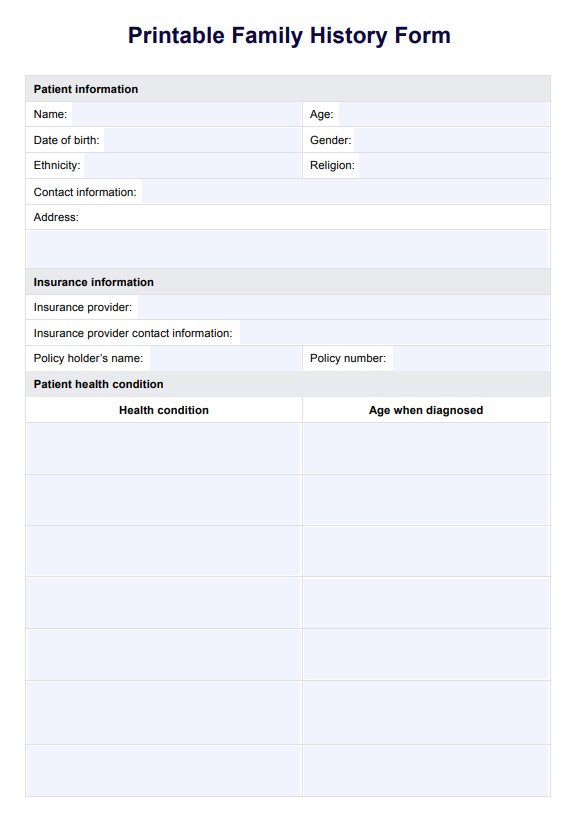A family history form is a document that records the health information of an individual and their biological relatives, including diseases and conditions affecting family members, both living and deceased. This form helps identify potential genetic risks and patterns of inheritance, often represented in a pedigree chart.

Printable Family History Form
Get our Printable Family History Form template to capture essential family medical history and improve patient care.
Printable Family History Form Template
Commonly asked questions
To document your family history, gather information from relatives about their health conditions and ages at diagnosis. You can use a Printable Family History or free genealogy forms to record this information systematically. Additionally, consider conducting oral history interviews and accessing online genealogy databases to compile complete records.
A doctor may inquire about your family's medical history to assess your risk for certain hereditary conditions, such as heart disease or diabetes. Understanding your family history helps healthcare professionals identify patterns of illness that could affect your health and guide recommendations for preventive care and screenings tailored to your specific risks.
EHR and practice management software
Get started for free
*No credit card required
Free
$0/usd
Unlimited clients
Telehealth
1GB of storage
Client portal text
Automated billing and online payments











